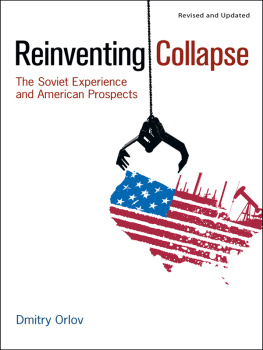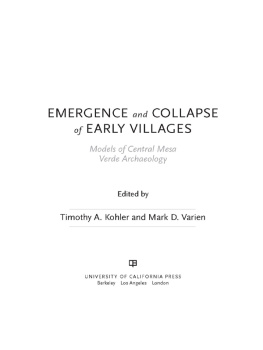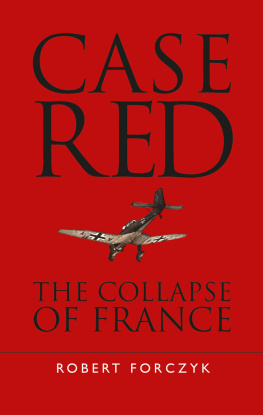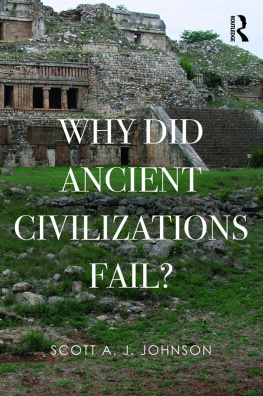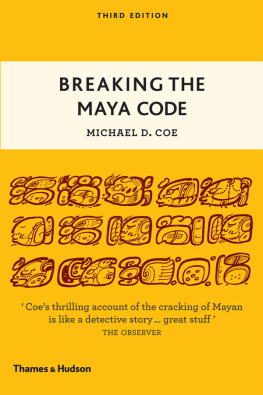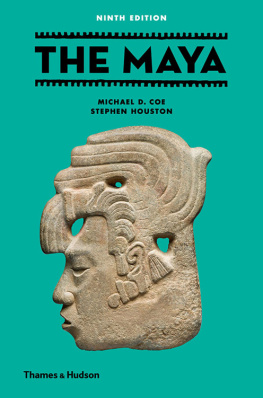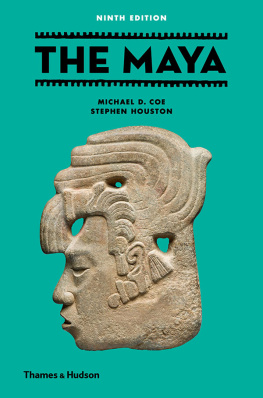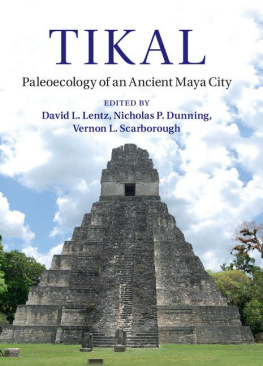p.i
Rome and the Classic Maya
This volume compares two of the most famous cases of civilizational collapse, that of the Roman Empire and the Classic Maya world. First examining the concept of collapse, and how it has been utilized in the historical, archaeological, and anthropological study of past complex societies, Storey and Storey draw on extensive archaeological evidence to consider the ultimate failure of the institutions, infrastructure, and material culture of both of these complex cultures.
Detailing the relevant economic, political, social, and environmental factors behind these notable falls, Rome and the Classic Maya contends that a phenomenon of slow collapse has repeatedly occurred in the course of human history: complex civilizations are shown to eventually come to an end and give way to new cultures. Through their analysis of these two ancient case studies, the authors also present intriguing parallels to the modern world and offer potential lessons for the future.
Rebecca Storey is Associate Professor of Anthropology at the University of Houston. Her research focuses on the bioarchaeology of Maya populations in ancient Mesoamerica.
Glenn R. Storey is Associate Professor of Classics and Anthropology at the University of Iowa. His research interests include Mediterranean archaeology, Roman demography, and the economy of the Roman Empire.
p.iv
First published 2017 by Routledge
711 Third Avenue, New York, NY 10017
and by Routledge
2 Park Square, Milton Park, Abingdon, Oxon OX14 4RN
Routledge is an imprint of the Taylor & Francis Group, an informa business
2017 Taylor and Francis
The right of Rebecca Storey and Glenn R. Storey to be identified as authors of this work has been asserted by them in accordance with sections 77 and 78 of the Copyright, Designs and Patents Act 1988.
All rights reserved. No part of this book may be reprinted or reproduced or utilized in any form or by any electronic, mechanical, or other means, now known or hereafter invented, including photocopying and recording, or in any information storage or retrieval system, without permission in writing from the publishers.
Trademark notice : Product or corporate names may be trademarks or registered trademarks, and are used only for identification and explanation without intent to infringe.
British Library Cataloguing in Publication Data
A catalogue record for this book is available from the British Library
Library of Congress Cataloging in Publication Data
A catalog record for this book has been requested
ISBN: 978-1-62958-457-7 (hbk)
ISBN: 978-1-62958-458-4 (pbk)
ISBN: 978-1-315-30941-5 (ebk)
Typeset in Goudy Oldstyle Std
by Swales & Willis Ltd, Exeter, Devon
p.x
Fiat scientia ruat caelum . Our paraphrase of a famous Latin aphorism means Let knowledge be, though the sky should fall. And the sky is literally falling with books on collapse, a situation we unfortunately feel compelled to contribute to. Or, more correctly, it is just to satisfy curiosity, which was, in the view of our mentor, William T. Sanders, the main justification for any scholarly endeavor.
Why do societies, which seem flourishing and successful, come to an end? And specifically, why did the Roman Empire decline and fall, and the Classic Maya collapse? As students of the human past, given our training in anthropology and classics, these two cases of collapse have always occupied us. G. Storey remembers being sufficiently obsessed with Gibbon that, waiting eight hours to see The Treasures of Tutankhamun in the National Gallery in Washington DC back in 1977, he duly polished off a good chunk of The Decline and Fall . R. Storey attributes her obsession to our first visit to the Yucatan as children and seeing Palenque rising out of the jungle, followed by similar impressions at Uxmal and Chichen Itza.
p.xi
But not everyone likes Gibbon, who is very out of favor in many circles, and although mooning over the mysteries of Maya ruins is de rigueur for even the most hard-headed academic, Mayanists now seem to feel that celebrating the modern Maya must be done without mentioning the possible failure of the Maya Collapse, as it might be embarrassing. R. Storey feels that she was way ahead on this, by emphasizing in colloquia years ago (one at the University of Iowa, for example), that the Maya have, above all, demonstrated remarkable resilience by the way that they have persisted and come back from the challenges of both the Collapse and European colonialism. G. Storey feels that it is somewhat unfair that no such reflection is possible for his Romans. As we shall see in the following pages, the idea of collapse is rejected by a substantial proportion of scholars in anthropology and classics who feel that continuity and resilience of the remnant peoples of ancient civilizations that have disappeared (lets not use the word collapse !) must be featured stick to the positive instead of the negative. But, the Romans are not generally included in the litany of peoples who have overcome. Look at how those plucky Italians have bounced back from the Decline and Fall of the Roman Empire! That is not a narrative that anyone gets excited about or thinks needs to be even mentioned.
In the end, we use this insight to make some comments about the large complex systems of the modern world. We do this with the greatest of tentativeness. The contexts of the ancient world and the modern world are very distinct. And it would be insane to try to predict the future in this uncertain world. As archaeologists, we cannot help but be concerned with endings, as we deal with past societies who are clearly no longer to be found, no matter how many continuities one can list.
We owe a lot of people thanks for help with our research on Rome and the Maya. Glenn thanks William V. Harris, his first professor of Roman studies at Columbia who inspired him and assigned his first paper on the Roman Decline and Fall. He also thanks his tutor at Trinity College, Oxford, James A. Holliday, for further inducting him into things Roman. And, Paul B. Harvey, Jr. at Penn State, taught him that classics and anthropology could be reconciled. Thanks also to Glenns daughter, Isabel Storey, for checking references multiple times. We also thank Keith Briffa of the University of East Anglia Climatic Research Unit for generously providing climatic data in raw form for us to use. Rebecca thanks David Webster, Mayanist extraordinaire, whose reasonable approach to the Maya and refusal to get caught up in the Mystique of the Maya has greatly influenced her approach to the Classic Maya Collapse. Rebecca thanks their sister,Sylvia, and friend Walter Pagel for being willing to represent general readers and give valuable feedback about how to present the Maya and their problems. Of course, we thank our mentor, the late Willam T. Sanders, who got us interested in the study of complex societies and how they evolve.



